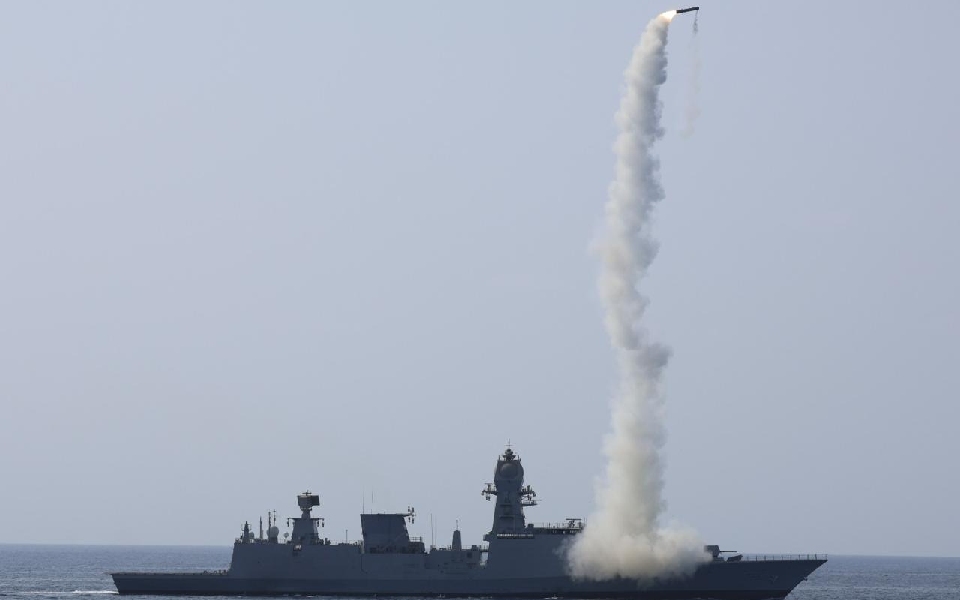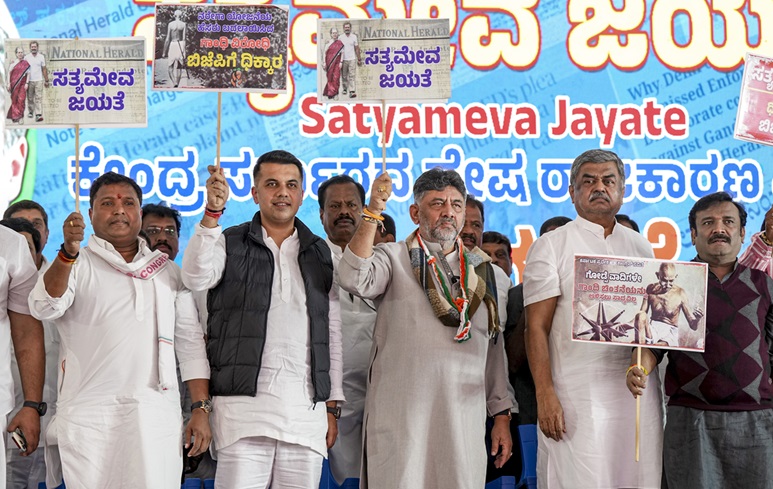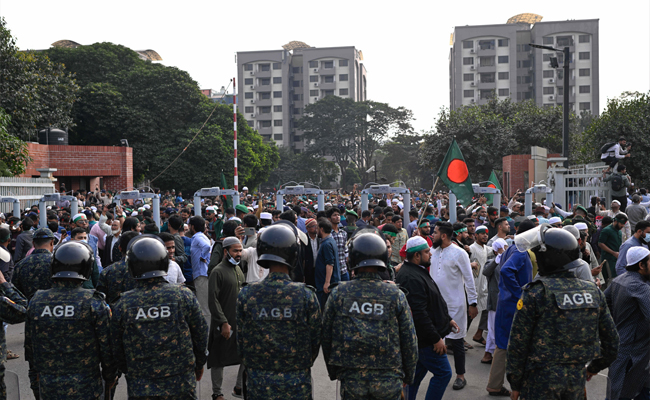New Delhi, Apr 27 (PTI): The Indian Navy on Sunday said its warships have successfully carried out multiple anti-ship firings, revalidating their readiness for long-range precision "offensive" strikes.
The demonstration of the Navy's combat prowess came amid heightened tensions between India and Pakistan over the dastardly Pahalgam terror attack that killed 26 civilians.
Citing "cross-border linkages" to the horrific attack, India has already promised severe punishment to those involved in the strike that triggered wide-spread outrage within India and abroad.
"Indian Navy ships undertook successful multiple anti-ship firings to revalidate and demonstrate readiness of platforms, systems and crew for long range precision offensive strike," the Indian Navy said in a brief statement.
"Indian Navy stands combat ready, credible and future ready in safeguarding the nation's maritime interests anytime, anywhere, anyhow," it said.
The Indian Navy also released videos of the live firings at sea but did not provide details like when the exercise was carried out.
As the tensions between the two countries soared, Pakistani military continued to resort to unprovoked firing along the Line of Control in the areas opposite Tutmari Gali and Rampur Sectors Saturday night, military sources said.
The Pakistan military resorted to similar firings on Thursday and Friday nights as well.
"Our troops responded effectively with appropriate small arms fire," said an Indian official.
The Pahalgam massacre in Kashmir was the worst terror strike on civilians in India since the 26/11 Mumbai attack.
On Sunday, Prime Minister Narendra Modi said the "perpetrators and conspirators" of the Pahalgam attack will be "served with the harshest response".
"The whole world stands with 140 crore Indians in our fight against terrorism. I once again assure the affected families that they will get justice, and justice will be done," Modi said in his 'Mann ki Baat' address.
"The perpetrators and conspirators of this attack will be served with the harshest response," he said.
Pakistan military has been put on high alert following India's promise that it will hunt down the terrorists involved in Tuesday's strike.
In the backdrop of the escalating tensions, the Indian Navy's guided missile destroyer INS Surat fired a medium range surface-to-air missile against a "sea skimming" target in the Western Indian Ocean last week.
India announced a raft of punitive measures against Pakistan on Wednesday, including suspension of the Indus Waters Treaty, shutting down of the only operational land border crossing at Attari and downgrading of diplomatic ties in view of cross-border links to the attack.
In response, Pakistan on Thursday shut its airspace to Indian airliners and suspended all trade with India, including through third countries. Pakistan also rejected India's suspension of the Indus Waters Treaty and said any move to stop the flow of water will be seen as an "act of war".
#IndianNavy Ships undertook successful multiple anti-ship firings to revalidate and demonstrate readiness of platforms, systems and crew for long range precision offensive strike.#IndianNavy stands #CombatReady #Credible and #FutureReady in safeguarding the nation’s maritime… pic.twitter.com/NWwSITBzKK
— SpokespersonNavy (@indiannavy) April 27, 2025
Let the Truth be known. If you read VB and like VB, please be a VB Supporter and Help us deliver the Truth to one and all.
Kalaburagi: The Kalyana Karnataka edition of the Kannada daily Vartha Bharati was formally launched on Saturday at a programme held at Dr S M Pandit Rangamandir in Kalaburagi. The event also marked the release of the newspaper’s twenty-third annual special issue, a compilation of selected editorials, and the Kalyana Karnataka special supplement.
The programme was inaugurated by Karnataka Legislative Assembly Speaker U T Khader. The Kalyana Karnataka edition of Vartha Bharati was unveiled by Siddharth Varadarajan, Editor-in-Chief of The Wire.
The twenty-third annual special issue was released by multilingual actor Prakash Raj. The book compiling selected editorials of Vartha Bharati was released by B R Patil, Vice-Chairperson of the State Policy and Planning Commission and MLA from Aland. The Kalyana Karnataka special supplement was released by Rahim Khan, Minister for Municipal Administration and Haj.
ALSO READ: Kalaburagi: ‘Vartha Bharati’ Kalyana Karnataka edition launched
Chairperson of the State Waqf Board and Sajjada Nashin of the Khwaja Bande Nawaz Dargah, Hazrat Syed Mohammed Ali Al Husseini, and Kalaburagi South MLA Allamaprabhu Patil were present as chief guests.
Among the special invitees on the dais were Koraneshwara Mahaswamiji of the Tontadarya Anubhava Mantapa, Aland; Bishop Rev Fr Robert Miranda of Kalaburagi; Bhante Varajyothi of Anandur; social activist K Neela; farmers’ leader Chamarasa Mali Patil; DSS state convenor D G Sagar; and activist and singer Ambanna Arolikar.
Speaking on the occasion, Assembly Speaker U T Khader said Vartha Bharati had emerged as the voice of the weak and the voiceless in society and had earned the love, trust and confidence of people across the state. He said the newspaper had carved out a distinct identity in the media landscape and expressed happiness that it was now reaching the Kalyana Karnataka region. He added that Vartha Bharati had remained free from political pressures and inducements and expressed hope that it would continue to stand as a support system for the distressed.
B R Patil said running a newspaper in the present times was not easy, as the media sector had increasingly turned into an industry driven by profit. Amidst such challenges, he said, Vartha Bharati had maintained integrity, honesty and commitment throughout its twenty-three-year journey. He expressed confidence that the newspaper would continue on the same path. Referring to Kalaburagi, he noted that the region frequently witnessed agitations due to the large number of unresolved issues, and said Vartha Bharati should continue to bring the problems and suffering of the people to the attention of the government and contribute to finding solutions.





